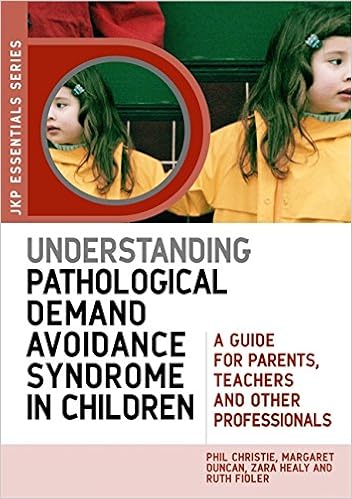I had a break through today! I won't get complacent as it might not happen again or at least not the next time I try the same things but.........
F is a beautiful, funny, witty, gorgeous little princess who is like a ray of sunshine...... until you ask her to do something, when she can turn into 'a monster from your worse nightmares' (parental quote, not my words but I do know what they mean).
I have used demand avoidance strategies on her for a while but the session might go something like this:
Me: 'Ok, thank you for choosing the order of the session F, let's see, you chose the memory game first.'
F: 'yes, but I'm not doing your stupid game now........I'm playing with the plastic fruit'
Me: 'No problem, let's use the fruit for the game.'
F: 'Ok, but I'm not playing on the table.'
Me: 'No problem, let's sit on the floor to do it, we'll have more room anyway.'
F: 'NO and you can't make me!'
Me: 'Where shall we do it because look, (pointing at her written list) you said we'd do it and it's on the list?'
F: 'On the floor under the table.'
Me: 'No problem,' but actually wondering if I'll get out from under the small table she's referring to!
This might happen for all 4 planned activities or we may only manage 2!
Today I 'wondered' (alot!) and did not tell her to do anything at all. I acted as an equal, discussing her favourite things, commenting on her new shoes, drawing on a white board next to F drawing on her white board. I asked no questions but made lots of comments:
'I wonder where F would want to work' (she chose somewhere different to usual)
'I was wondering what F had for xmas'
'I wonder what order we should do these'
'I wonder if F could show me..'
'I wonder if F wants to carry on drawing while we do this activity'
'I'm not sure I know what to do here...'
'I think I need help with this...'
We managed all the activities and both of us looked far less stressed at the end. I will try that again but F may have changed the goals by next week!
I love the ideas and activities in Understanding Pathological Demand Avoidance Syndrome in Children: A Guide for Parents, Teachers and Other Professionals

F is a beautiful, funny, witty, gorgeous little princess who is like a ray of sunshine...... until you ask her to do something, when she can turn into 'a monster from your worse nightmares' (parental quote, not my words but I do know what they mean).
I have used demand avoidance strategies on her for a while but the session might go something like this:
Me: 'Ok, thank you for choosing the order of the session F, let's see, you chose the memory game first.'
F: 'yes, but I'm not doing your stupid game now........I'm playing with the plastic fruit'
Me: 'No problem, let's use the fruit for the game.'
F: 'Ok, but I'm not playing on the table.'
Me: 'No problem, let's sit on the floor to do it, we'll have more room anyway.'
F: 'NO and you can't make me!'
Me: 'Where shall we do it because look, (pointing at her written list) you said we'd do it and it's on the list?'
F: 'On the floor under the table.'
Me: 'No problem,' but actually wondering if I'll get out from under the small table she's referring to!
This might happen for all 4 planned activities or we may only manage 2!
Today I 'wondered' (alot!) and did not tell her to do anything at all. I acted as an equal, discussing her favourite things, commenting on her new shoes, drawing on a white board next to F drawing on her white board. I asked no questions but made lots of comments:
'I wonder where F would want to work' (she chose somewhere different to usual)
'I was wondering what F had for xmas'
'I wonder what order we should do these'
'I wonder if F could show me..'
'I wonder if F wants to carry on drawing while we do this activity'
'I'm not sure I know what to do here...'
'I think I need help with this...'
We managed all the activities and both of us looked far less stressed at the end. I will try that again but F may have changed the goals by next week!
by



No comments:
Post a Comment